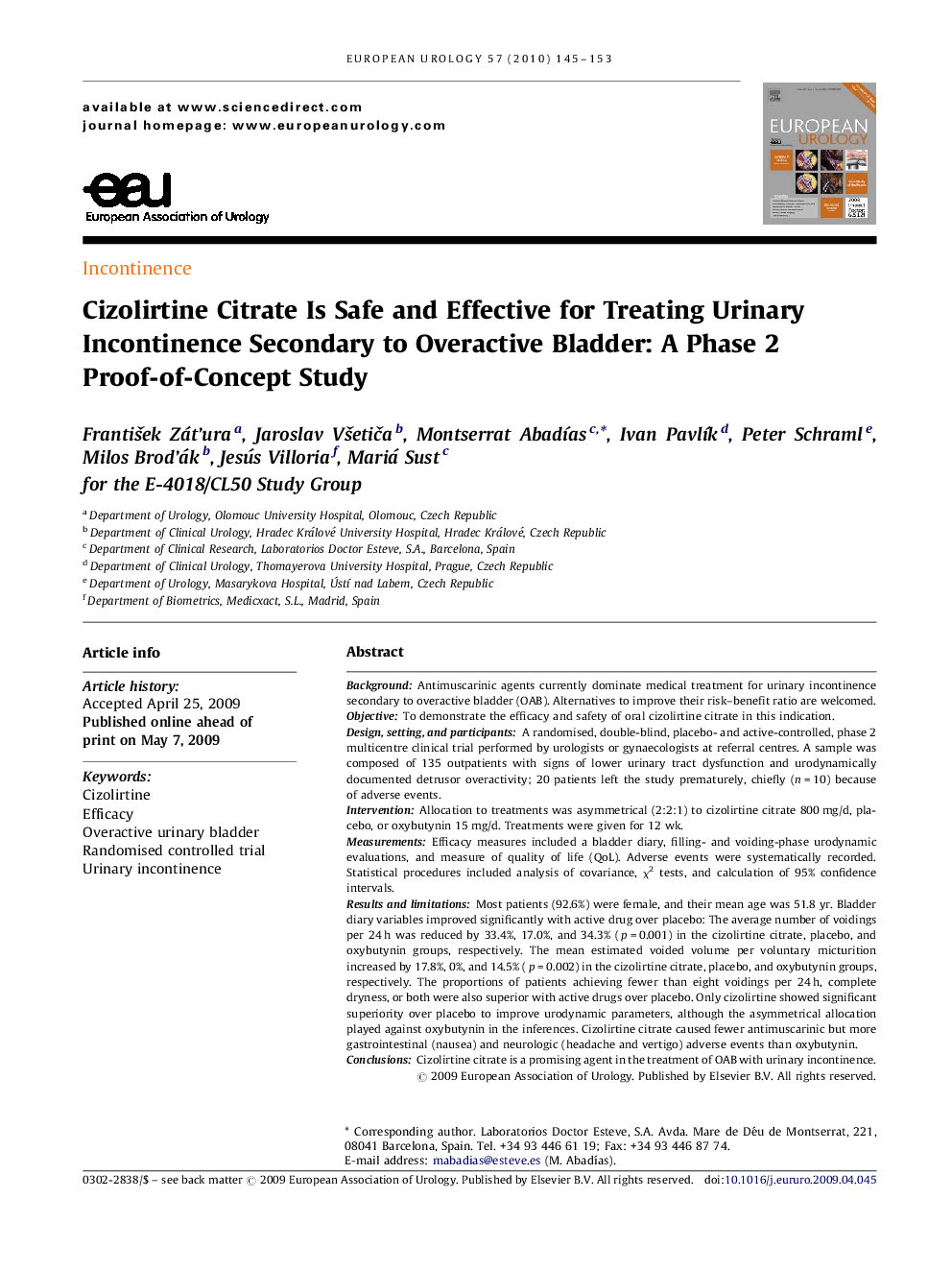| Article ID | Journal | Published Year | Pages | File Type |
|---|---|---|---|---|
| 3927181 | European Urology | 2010 | 9 Pages |
BackgroundAntimuscarinic agents currently dominate medical treatment for urinary incontinence secondary to overactive bladder (OAB). Alternatives to improve their risk–benefit ratio are welcomed.ObjectiveTo demonstrate the efficacy and safety of oral cizolirtine citrate in this indication.Design, setting, and participantsA randomised, double-blind, placebo- and active-controlled, phase 2 multicentre clinical trial performed by urologists or gynaecologists at referral centres. A sample was composed of 135 outpatients with signs of lower urinary tract dysfunction and urodynamically documented detrusor overactivity; 20 patients left the study prematurely, chiefly (n = 10) because of adverse events.InterventionAllocation to treatments was asymmetrical (2:2:1) to cizolirtine citrate 800 mg/d, placebo, or oxybutynin 15 mg/d. Treatments were given for 12 wk.MeasurementsEfficacy measures included a bladder diary, filling- and voiding-phase urodynamic evaluations, and measure of quality of life (QoL). Adverse events were systematically recorded. Statistical procedures included analysis of covariance, χ2 tests, and calculation of 95% confidence intervals.Results and limitationsMost patients (92.6%) were female, and their mean age was 51.8 yr. Bladder diary variables improved significantly with active drug over placebo: The average number of voidings per 24 h was reduced by 33.4%, 17.0%, and 34.3% (p = 0.001) in the cizolirtine citrate, placebo, and oxybutynin groups, respectively. The mean estimated voided volume per voluntary micturition increased by 17.8%, 0%, and 14.5% (p = 0.002) in the cizolirtine citrate, placebo, and oxybutynin groups, respectively. The proportions of patients achieving fewer than eight voidings per 24 h, complete dryness, or both were also superior with active drugs over placebo. Only cizolirtine showed significant superiority over placebo to improve urodynamic parameters, although the asymmetrical allocation played against oxybutynin in the inferences. Cizolirtine citrate caused fewer antimuscarinic but more gastrointestinal (nausea) and neurologic (headache and vertigo) adverse events than oxybutynin.ConclusionsCizolirtine citrate is a promising agent in the treatment of OAB with urinary incontinence.
